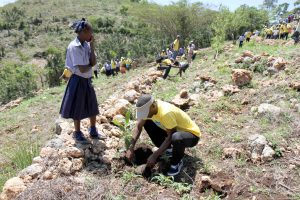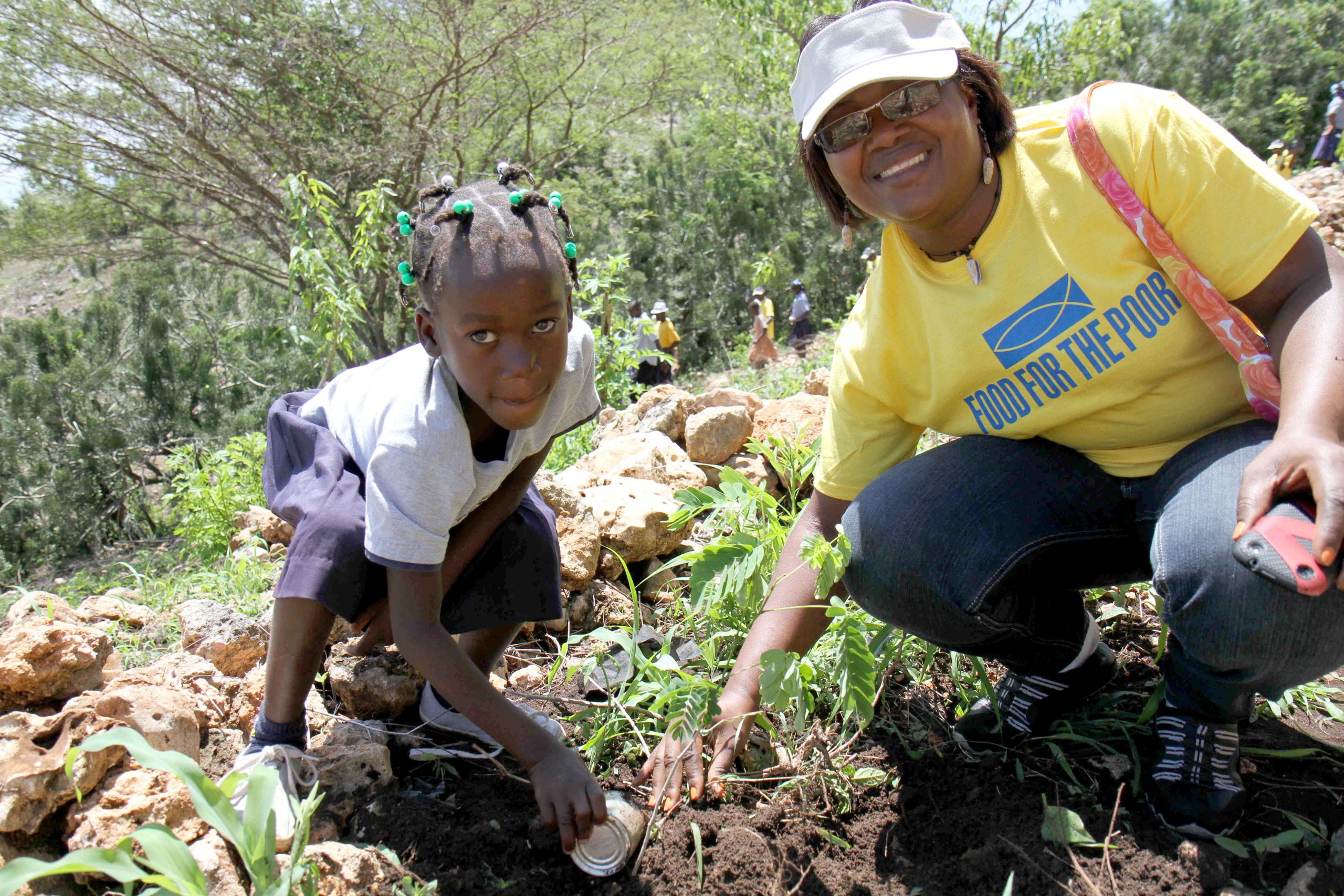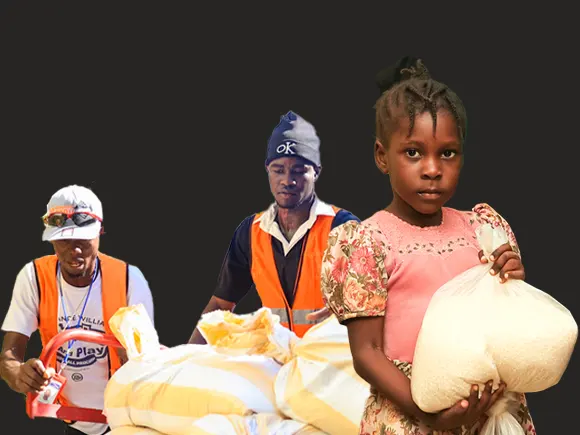Matt Herzel is Food For The Poor’s very talented Multimedia Developer. He traveled to Haiti earlier this year, where he saw how FFPs reforestation efforts are making barren landscapes fruitful once again.
By Matt Herzel
Travel from the Dominican Republic across the border into Haiti and two things immediately strike you: the beautiful, rugged hills, and the complete lack of trees covering them.
Haiti’s lush forests have been decimated in the past 200 years by a population still reliant on wood and charcoal as their primary fuel source. Today less than two percent of the country is forested.
Deforestation is not an issue we always associate with poverty, but it affects Haitians in countless ways. Without trees to hold soil on the hills, erosion is a serious problem. Many subsistence farmers (growers with small plots who primarily eat their produce rather than sell it) struggle to find usable land in the constantly shifting landscape.
Without vegetation, much of Haiti is already beginning the slow transition toward desert. As the country becomes more arid, growing food for a family becomes even more difficult.
These large ecological concerns are balanced by the daily challenge of simply finding fuel for cooking fires. Mothers and children sometimes spend hours each day scavenging for wood and vegetation on the bare hills. Thousands more who are unable to find work are cutting down trees in order to make charcoal to sell at market.
Food For The Poor is addressing these problems head-on through various reforestation projects. So far this year, the organization has planted more than 2,000 trees in and around the community of Grand Boulage. During a special event in May, residents joined staff members as they carefully placed saplings on the stark hills, beginning a new generation of forest.

Families also received fruit trees to plant at home. When the mango, avocado, cherry, soursop, and lime trees mature, they will provide a sustainable source of nutritious food.
To preserve what little forest remains, Food For The Poor and other organizations are promoting the use of alternative fuels and more efficiently burning stoves. Kerosene or biomass stoves save trees, time, and burn cleaner than traditional cooking fires.
Fighting a wide-reaching issue like deforestation may seem intimidating, but change can be made – one tree at a time. By planting saplings, educating communities, and developing alternative fuel sources for poor Haitians, we can begin to dream of a future where the hills of Haiti are green again.


